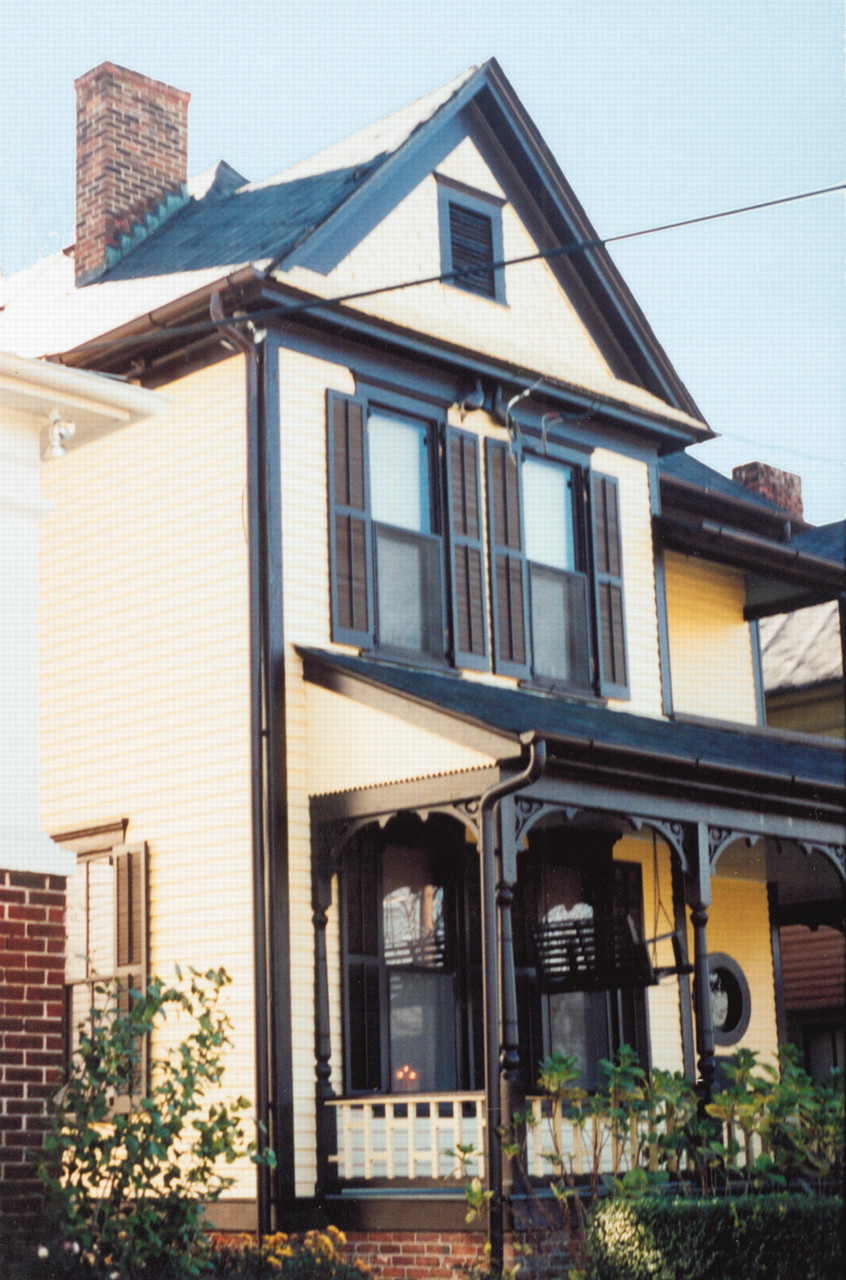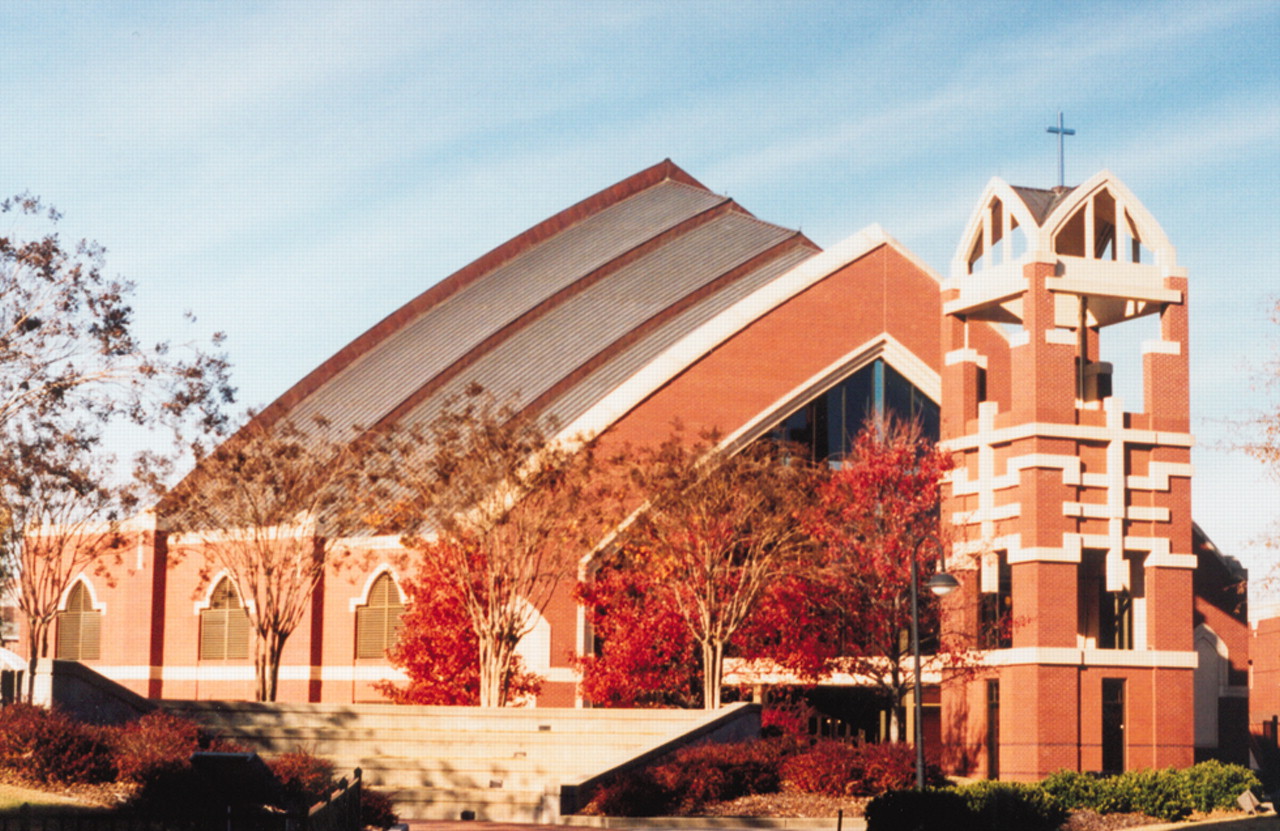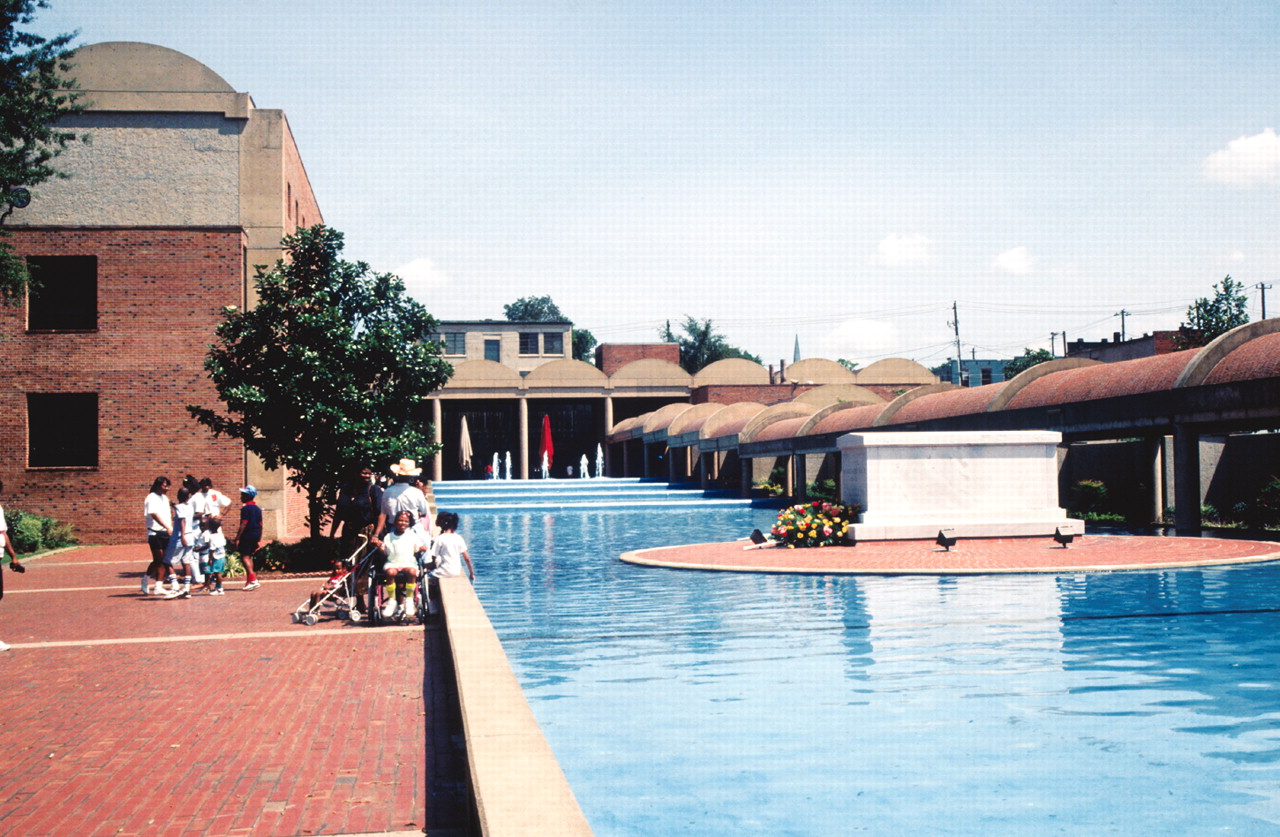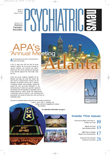A visit to the Atlanta neighborhood in which Martin Luther King Jr. lived can be a powerful experience as it serves to remind visitors that it wasn't that long ago when black Americans were denied the civil rights afforded to other Americans.
The neighborhood is located on and around Auburn Avenue in downtown Atlanta. It is what many African Americans affectionately call Sweet Auburn. It was the center of black enterprise in Atlanta from the 1890s to the 1940s and dubbed, during the 1950s, “the richest Negro street in the world.”
King's grandfather bought a 10-room house at 501 Auburn Avenue in 1909. King was born in the house in 1929 and lived there during the first 12 years of his life, along with his brother and sister, parents, maternal grandparents, uncle, and a great aunt. The house is still standing—a spacious, charming Victorian structure with cream-colored clapboards and dark-brown trim.
In 1948 King was ordained a Baptist minister and appointed associate pastor at Ebenezer Baptist Church, located at 407-13 Auburn Avenue. During the 1960s, he once again served as co-pastor of the church and planned civil-rights protest strategies. This historic red-brick structure is still intact and beautifully maintained. Inside, sun pours through oblong windows and bathes the pews with a mellow glow. Recordings of King's historic speeches and meetings with such figures as President John Kennedy bring the passionate orator to life once again for visitors. They become quiet and are visibly moved as they listen to such addresses as “I Have a Dream,” which he delivered in the August 1963 March on Washington for Jobs and Freedom. That march brought some 250,000 Americans of various races and creeds together to demand racial justice for blacks.
Even with its uplifting atmosphere, however, it is hard to forget that the church was also the scene of several heart-rending events. One was King's funeral after he was murdered in Memphis on April 4, 1968. Another was the murder of King's mother in the church itself; she was fatally shot in June 1974 while playing the church organ for a Sunday worship service.
And the neighborhood has still more soul-stirring venues to offer. Visitors can view King's tomb, dedicated in 1977, and go to Freedom Hall, which contains personal artifacts and timelines related to King and his wife, Coretta Scott King, as well as to Rosa Parks, another major figure of the civil rights movement. They can visit Fire Station Number Six, Atlanta's oldest remaining firehouse and now a museum that tells the story of the desegregation of Atlanta's fire department. And they can pay a visit to the National Park Service Visitor Center, which contains interactive exhibits and films about King and the movement in which he played a key role. One of the facts cited in the center is that King traveled to India in 1957 to meet Prime Minister Jawaharlal Nehru and to learn about Indian teachings of nonviolence, which King then used in his own quest for American racial justice.
Taken together, King's birth home, Ebenezer Baptist Church, King's tomb, Freedom Hall, Fire Station Number Six, and the National Park Service Visitor Center constitute the Martin Luther King Jr. National Historic Site.
Surrounding the national historic site is a preservation district, which helps maintain the historic atmosphere of Sweet Auburn. Most of the buildings and homes within this district are privately owned since Sweet Auburn is still very much a thriving community. Moreover, across the street from the historic Ebenezer Baptist Church where King preached is a modern Ebenezer Baptist Church, built in 1999. The streamlined, V-shaped building, like its predecessor, is constructed from a warm, rich red brick.
If King were alive today, he would be pleased that many successful African Americans reside in Atlanta. In fact, Atlanta has been rated as one of the best American cities in which African Americans can live and work, Lauren Kenworthy, public relations specialist for the Atlanta Convention and Visitors Bureau, told Psychiatric News.
Martin Luther King Jr. National Historic Site is located at 450 Auburn Avenue NE. Additional information is available by phone at (404) 331-5190 or online at<www.nps.gov/malu>.▪



